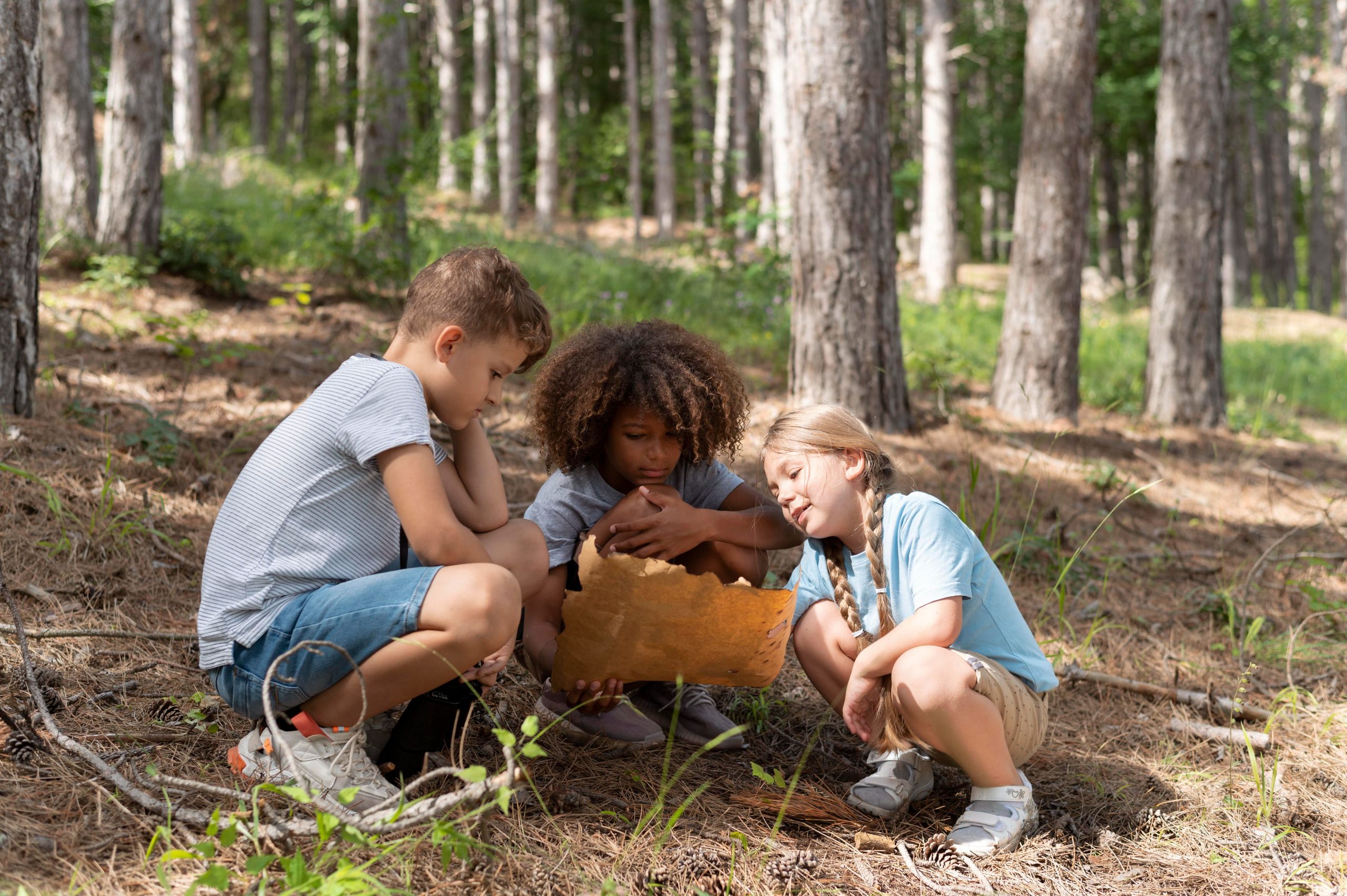
Exploring the Outdoors: Fun Field Trip Ideas for Preschoolers
As the weather warms up, preschoolers get excited about exploring the great outdoors. Field trips offer a chance for preschoolers to learn and have fun outside of the classroom. With proper planning, these trips can be both educational and enjoyable for all involved. In this article, we’ll explore some ideas for field trips with preschoolers and dive deeper into one popular activity: scavenger hunts.
Field Trip Ideas for Preschoolers
When planning a field trip for preschoolers, it’s important to keep their age, attention span, and interests in mind. Here are some fun ideas to consider:
- Nature Walks: Take a stroll through a local park or nature reserve. Encourage preschoolers to observe their surroundings and engage in nature-related activities such as leaf rubbings or bird watching.
- Farm Visits: Visit a local farm and give preschoolers a chance to learn about the animals and crops. Some farms may offer additional activities such as hayrides or pumpkin picking.
- Fire Station Visits: Many fire stations offer tours for preschoolers. These visits can be a great way to learn about fire safety and the role of firefighters in the community.
- Museum Visits: There are many museums that cater to young preschoolers. Consider visiting a preschoolers’ museum or a science museum with hands-on exhibits.
- Community Service: Take preschoolers on a field trip that involves giving back to the community, such as cleaning up a local park or visiting a retirement home.
Scavenger Hunts for Preschoolers
Scavenger hunts are a fun and educational activity that can be tailored to fit any field trip. Here are some tips for planning a scavenger hunt for preschoolers:
- Keep it Simple: Make sure the scavenger hunt is age-appropriate and easy to understand. Use pictures or simple words to describe the items to be found.
- Make it Fun: Encourage preschoolers to work together and make the scavenger hunt into a game. Offer small prizes or treats as motivation.
- Be Safe: Supervise the preschoolers closely and make sure the scavenger hunt takes place in a safe environment.
- Tailor it to the Field Trip: Make the scavenger hunt relate to the field trip destination. For example, a nature-themed scavenger hunt might involve finding certain types of leaves or rocks.
- Use Technology: Consider using a smartphone or tablet app to create a digital scavenger hunt. This can be a fun and engaging way for preschoolers to learn and explore.
Scavenger Hunt Examples
Here are some scavenger hunt ideas for specific field trip destinations:
Nature Walk Scavenger Hunt:
- Find a leaf that is bigger than your hand
- Spot a bird and identify its color
- Find a flower and smell it
- Find a rock and describe its texture
- Find an insect and observe its movement
Farm Visit Scavenger Hunt:
- Find a cow and describe its color and size
- Find a chicken and observe its behavior
- Spot a tractor and identify its color
- Find a crop and describe its texture
- Spot a scarecrow and describe its features
Fire Station Visit Scavenger Hunt:
- Find a firefighter’s hat and try it on
- Spot a fire truck and identify its parts
- Find a fire extinguisher and describe how it works
- Spot a firefighter and ask him/her a question about fire safety
- Find a fire pole and describe how it’s used
Museum Visit Scavenger Hunt:
- Find a dinosaur skeleton and describe its size
- Spot a planet and name it
- Find a musical instrument and play a few notes
- Spot a painting and describe the colors used
- Find a sculpture and describe its shape and texture
- Spot a fossil and describe what it is
- Find a map and identify a country or continent
- Spot a model of a vehicle and identify what type it is
- Find a button or switch and describe what it does
Digital Scavenger Hunt:
- Take a photo of a flower with three petals
- Find a tree with a bird’s nest and take a photo
- Take a video of a waterfall or flowing stream
- Find a butterfly and take a close-up photo
- Take a photo of a leaf with interesting patterns
Field trips and scavenger hunts are a great way to get preschoolers excited about learning and exploring. With careful planning and age-appropriate activities, these trips can be both fun and educational. Scavenger hunts, in particular, can be tailored to fit any field trip and offer a great opportunity for preschoolers to work together and develop problem-solving skills. So, get outside and explore with your preschoolers – the possibilities are endless.


